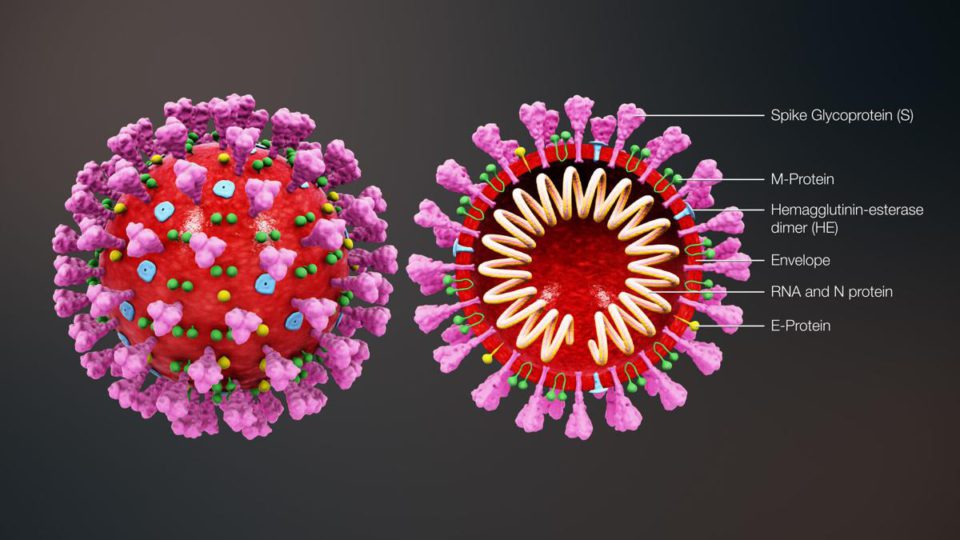A new strain of the coronavirus (COVID-19) is emerging. First identified in the United Kingdom (U.K.), it as been found in multiple countries, including the United States. And on Monday it was reported in upstate New York.
So what are the symptoms of the variant virus? Should we be worried that it’s more dangerous or spreads more easily? And, will the current vaccines work?
While there is no evidence that the U.K. variant causes more severe illness or increased risk of death, the Centers for Disease Control and Prevention (CDC) announced that it is monitoring the illness closely.
“Information regarding the virologic, epidemiologic and clinical characteristics of the variant are rapidly emerging,’’ the CDC said on its website, noting that it will communicate new information as it becomes available.
There is also a South African strain of the coronavirus, but it has emerged it is not related to the U.K. mutation, the South African government has said.
Gov. Andrew Cuomo confirmed on Monday the state’s first case of what many believe is a more transmissible strain of the coronavirus. Health officials found the case in a Saratoga Springs man in his 60s whose condition has since improved from when he first contracted the virus.
While the newly identified strain has not been found to cause more severe symptoms, Cuomo said the state is concerned about at-risk individuals coming into contact with the more contagious version of the virus.
Ongoing travel between the United Kingdom and the United States, as well as the high prevalence of this variant among current U.K. infections, increases the likelihood of importation, the CDC said.
What symptoms should we look for?
The symptoms of the new variant so far have been identical to those of the initial strain, doctors say, but the CDC is monitoring the situation closely.
People with the new strain of COVID-19 have had a wide range of symptoms, ranging from mild to severe. Those symptoms can appear anywhere from two to 14 days after exposure, and include:
- Fever or chills
- Cough
- Shortness of breath or difficulty breathing
- Fatigue
- Muscle or body aches
- Headache
- New loss of taste or smell
- Sore throat
- Congestion or runny nose
- Nausea or vomiting
- Diarrhea
Some symptoms, such as trouble breathing, chest pain or pressure or difficulty staying awake, are signs of serious illness and require immediate medical care.
Is the U.K. variant more contagious?
The mutations in the new strain seem to affect the coronavirus spike proteins, which cover the outer coating of the virus and give it its characteristic spiny appearance, physicians at Johns Hopkins Medicine said in a Dec. 28, 2020, published report. These proteins help the virus attach to human cells in the nose and other areas and invade the body, causing COVID-19 illness.
“Researchers want to see whether the new strain is more ‘sticky,’ due to changes in the spike protein,” said Dr. Robert Bollinger in the Johns Hopkins report. “But, at this point, that’s not proven, and further studies will reveal more about whether or not the new strain is more easily transmitted.”
How do I keep my family safe?
According to the World Health Organization (WHO) and the CDC, the most important ways to slow the spread and protect yourself and others are:
- Wear a mask.
- Stay at least six feet from anyone who doesn’t live with you.
- Avoid crowds. The more people you come into contact with, the more likely you are to be exposed to COVID-19, the CDC says.
- Avoid poorly ventilated areas.
- Wash your hands often with soap and water and use hand sanitizer.
Will the vaccine work?
The Johns Hopkins team says there’s no proof right now that the current COVID-19 vaccines won’t work against the variant.
“There is no evidence at this point that immune responses driven by current vaccines would not work against this new strain,” said Dr. Stuart Ray, vice chairman of medicine for data integrity and analytics at the Johns Hopkins Hospital, in the published report on the topic.
All viruses mutate over time, the WHO said, some more than others. Some changes make the virus stronger, while others “are detrimental to its propagation.’’
Flu viruses change often, which is why doctors recommend we get a flu shot every year, Bollinger said.


